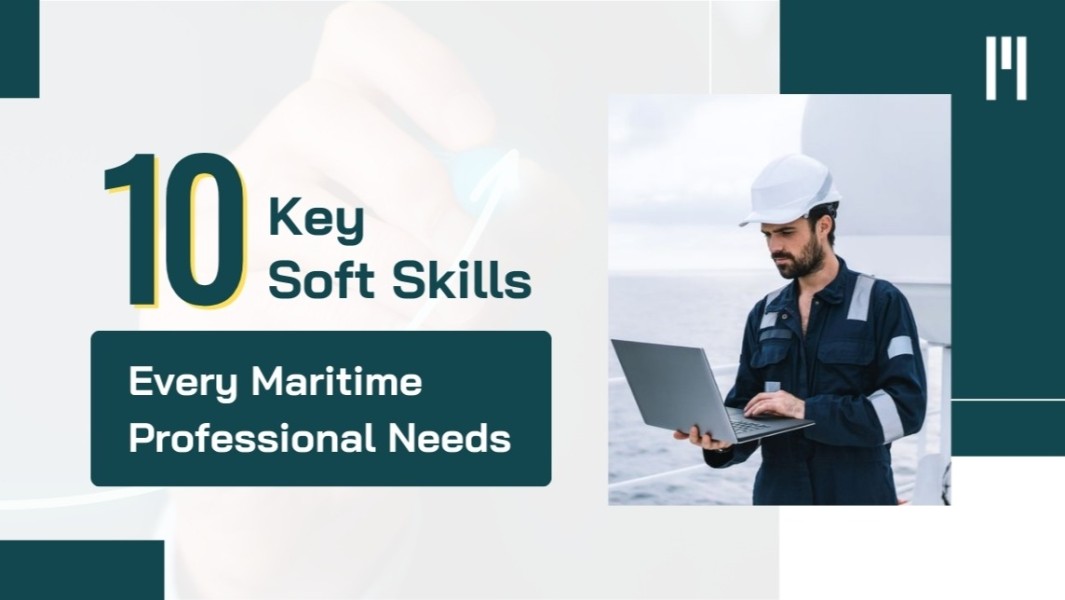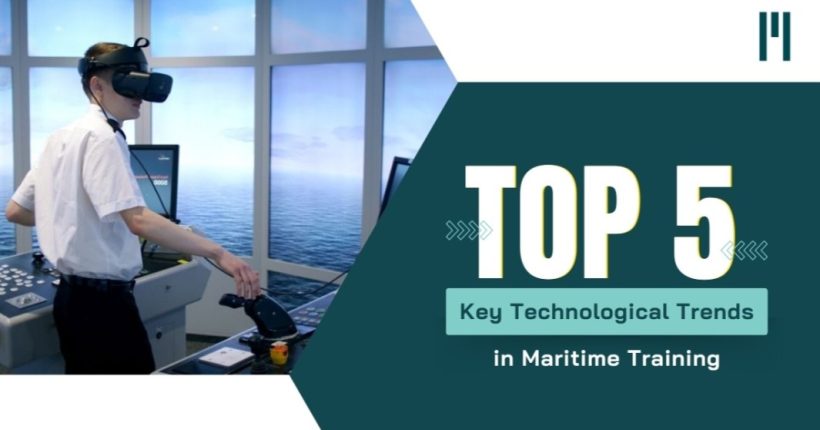When we think about maritime careers, the first thing that often comes to mind is technical expertise i.e. navigating vessels, maintaining engines, or ensuring cargo safety. While these technical skills are critical, there’s another equally important set of abilities that maritime professionals need to thrive are soft skills. These are the interpersonal, communication and emotional intelligence skills that help individuals work effectively with others and adapt to challenges.
In this article, we’ll dive into the significance of soft skills in maritime careers, the key skills every maritime professional should develop and how to cultivate these abilities to stay ahead in a rapidly evolving industry.
What Are Soft Skills?
Soft skills refer to the non-technical abilities that govern how individuals interact with others, solve problems and manage their work. Soft skills are universal and apply across all professions.
In the maritime industry, where professionals often live and work in close quarters under challenging conditions, soft skills are essential for fostering teamwork, resolving conflicts and maintaining a productive environment. Examples of soft skills include communication, leadership, adaptability, and emotional intelligence.
Why Are Soft Skills Important in Maritime Careers?
Soft skills play a vital role in ensuring the safety, efficiency and harmony of maritime operations. Here are five reasons why they’re crucial:
- Enhanced Communication and Teamwork: From giving clear instructions to resolving misunderstandings, good communication helps build trust and collaboration among crew members, leading to a more cohesive team.
- Improved Safety: The maritime industry prioritizes safety above all else. Soft skills like active listening and problem-solving allow professionals to follow safety protocols, report issues accurately and respond quickly to emergencies.
- Cultural Sensitivity in Multinational Crews: Ships often have multinational crews, with members from diverse cultural backgrounds. Soft skills like cultural awareness and empathy enable professionals to respect differences, avoid misunderstandings and build stronger connections.
- Conflict Resolution: Living in confined spaces for extended periods can lead to disagreements. Soft skills such as negotiation and emotional intelligence help resolve conflicts peacefully, ensuring a harmonious work environment.
- Adaptability to Change: The maritime industry is ever-evolving with new technologies, regulations and challenges. Soft skills like adaptability and critical thinking empower professionals to embrace change and tackle uncertainties effectively.
Key Soft Skills Every Maritime Professional Needs
Here are 10 essential soft skills that maritime professionals should develop to excel in their careers:
- Communication: Clear and concise communication is critical, whether it’s relaying instructions, writing reports or coordinating with colleagues.
- Teamwork: Ships operate as a unit and strong teamwork ensures tasks are completed efficiently and without conflict.
- Leadership: Whether you’re a captain or a junior officer, leadership skills are essential for motivating others, making decisions and maintaining order onboard.
- Emotional Intelligence: The ability to understand and manage your own emotions and empathize with others is vital for building strong relationships.
- Cultural Sensitivity: Respect for cultural differences is key to creating an inclusive and respectful workplace, especially in multinational crews.
- Problem-Solving: Maritime professionals often face unexpected challenges, such as equipment failure or weather changes. Quick and effective problem-solving is a must.
- Conflict Resolution: The ability to mediate disputes and find win-win solutions helps maintain harmony onboard.
- Adaptability: From dealing with changing schedules to embracing new technologies, adaptability ensures you remain flexible and proactive.
- Time Management: Meeting deadlines and prioritizing tasks are critical for ensuring operations run smoothly.
- Stress Management: Long hours and high-pressure situations are common in maritime careers. Stress management skills help professionals stay focused and maintain their well-being.
How to Develop Soft Skills
Developing soft skills takes time, effort, and consistent practice. Here are five ways maritime professionals can cultivate these abilities:
- Practice Self-Reflection: Take time to reflect on your actions, decisions and interactions. Identify areas for improvement and actively work on them.
- Learn from Mentors: Seek guidance from experienced colleagues or mentors who can provide insights and constructive feedback on your interpersonal and emotional skills.
- Participate in Training Programs: Join specialized courses designed for leadership, communication and teamwork. Our maritime & offshore institute IMOI provides tailored training for maritime professionals.
The Future of Soft Skills in the Maritime Industry
As the maritime industry evolves, the importance of soft skills will only grow. Automation and technology may reduce the need for certain technical tasks, but the human element i.e. communication, leadership, adaptability will remain irreplaceable.
Ready to Enhance Your Soft Skills?
Equip yourself and your team with the tools to succeed in today’s dynamic maritime environment. Explore IMOI’s tailored training programs designed to build critical soft skills for maritime professionals.





